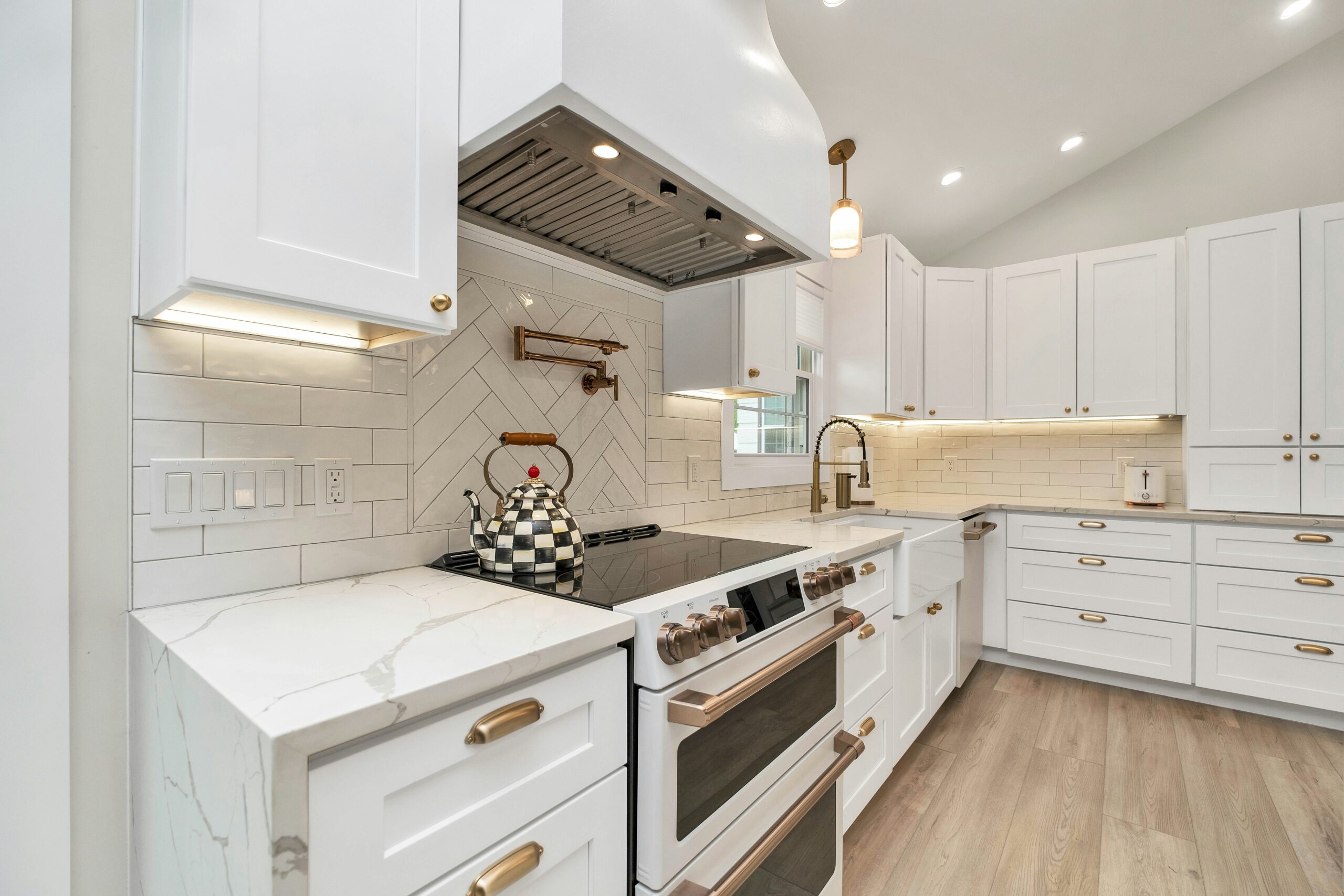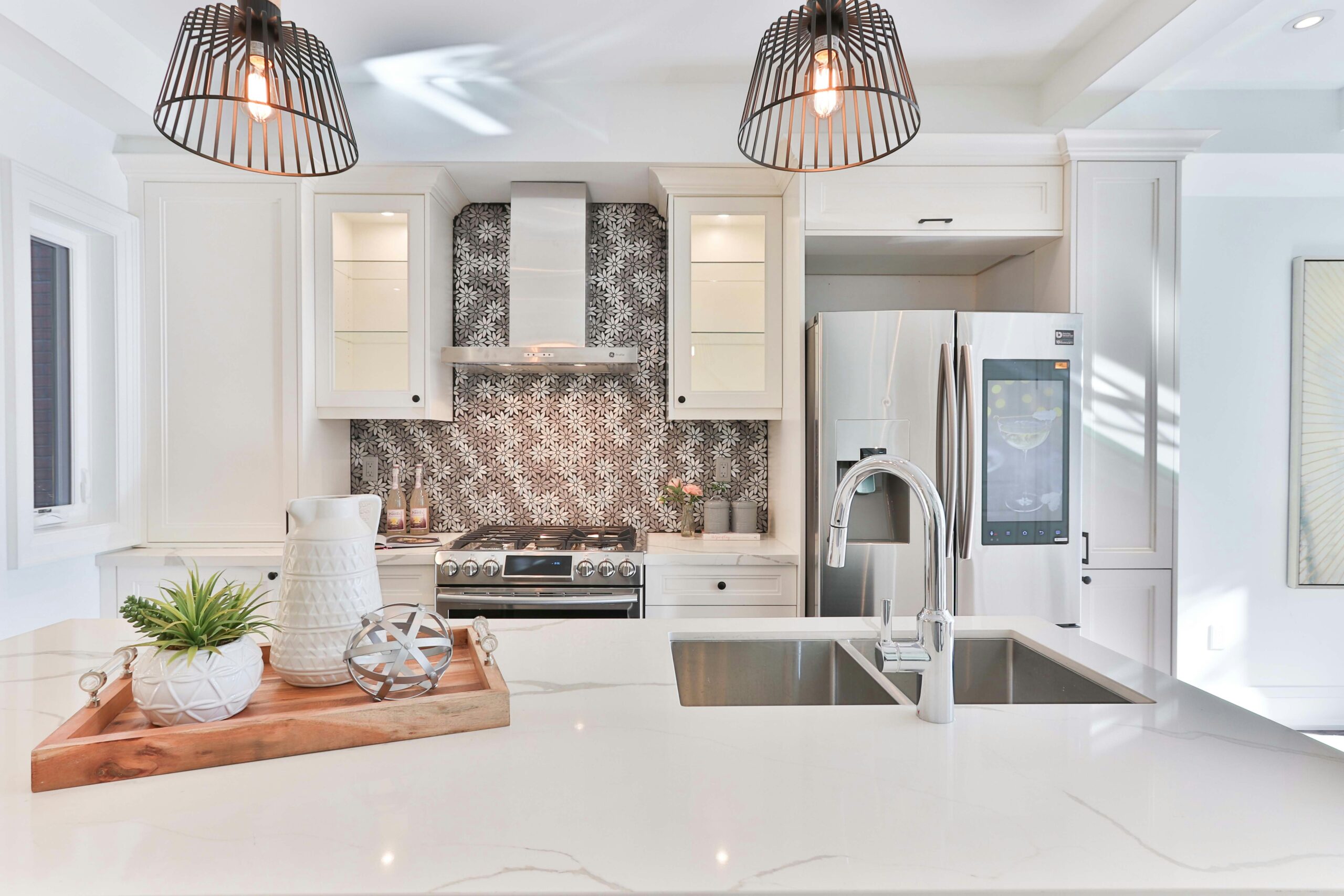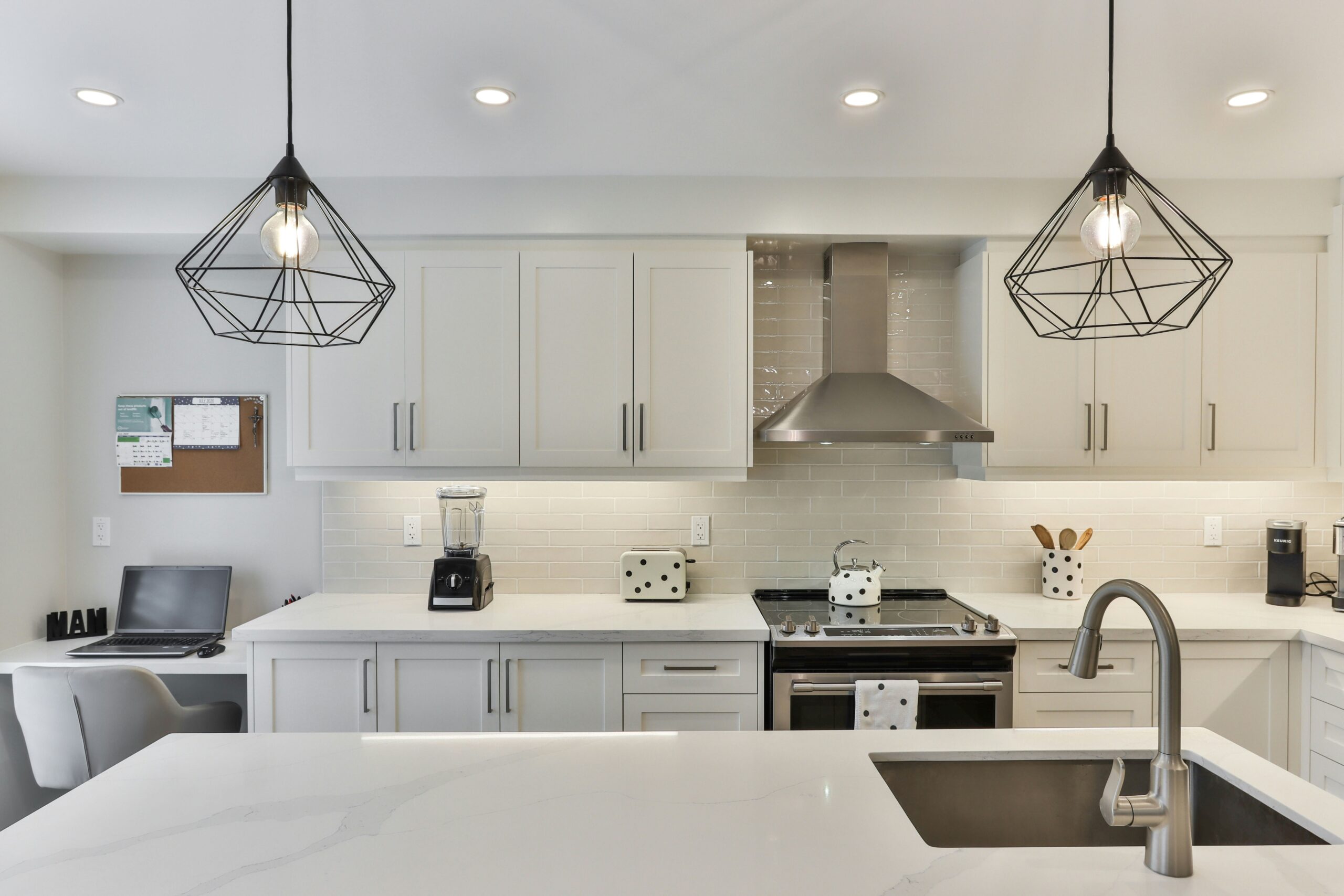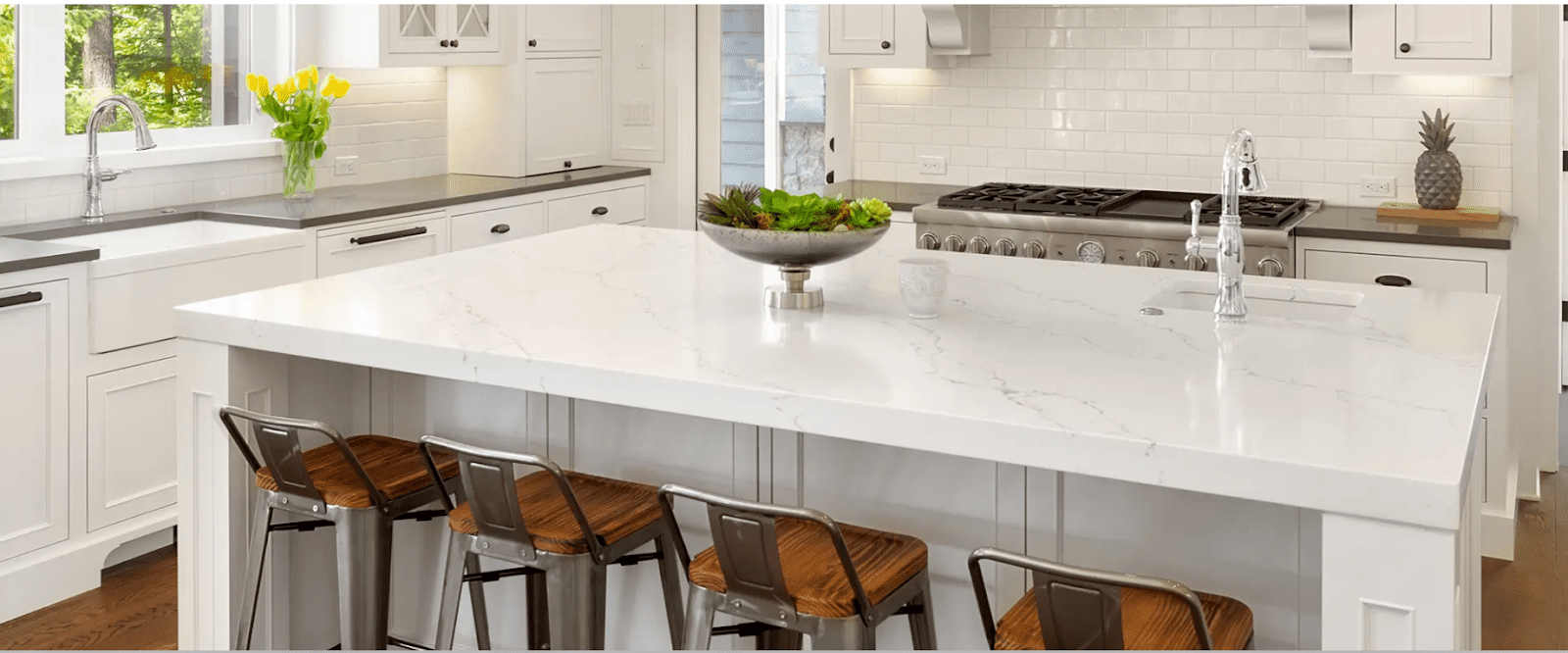
Homeowners and builders frequently focus on the cost of quartz countertops, and it’s easy to see why. Quartz has become a go-to in modern projects thanks to an unbeatable mix of durability, sleek design and reliable performance.
Unlike natural stone, which can vary widely in quality and appearance, quartz offers consistent beauty, fewer imperfections and a smoother fabrication process.
Quartz countertop prices can vary widely, but once you know what actually drives the cost, it’s easier to give accurate quotes, stick to the budget and show why quartz is a solid long-term investment.
What is Quartz and Why is it Popular?
Quartz is made of silicon and oxygen atoms that join together in a shape called a silica tetrahedron — basically a tiny pyramid with four triangular sides. These shapes connect in repeating patterns, creating the crystals we know as quartz.
In home interiors, quartz countertops are crafted by blending this natural quartz with resins and pigments, resulting in a surface that’s durable, versatile and consistent.
Because of its non-porous composition, quartz is low-maintenance, resisting stains, scratches and moisture. It also comes in a wide range of colors and patterns, often mimicking the look of marble, granite or concrete.
Unlike natural stone, quartz has a predictable quality with fewer flaws. It’s easier to work with and doesn’t require sealing.
Average Cost Ranges
When estimating the cost of quartz countertops, you can expect a fairly broad price range, typically between $1,500 and $8,000. On average, most homeowners will spend around $4,500 for their kitchen countertop, including materials and installation.
Factors Impacting Price

To help you budget effectively for your next quartz countertop project, here are the factors you’ll need to consider.
Brand
As with many retail products, a brand name can increase the cost of quartz countertops. Well-known brands often charge more due to their reputation, manufacturing technology, tighter quality control, superior warranties and greater color consistency. Supply chain markups and branding premiums are also factored into that cost.
Mid-tier or builder-grade quartz sources can offer more economical pricing, but may have fewer colors, less variation control and shorter warranties.
Your homeowner customers perceive popular brands as a guarantee of quality, but be aware of the trade-offs. You’ll want to compare not only the sticker price, but also yield, warranty terms, regional availability, freight costs, minimum orders and available support when recommending a brand.
Thickness
Quartz slabs typically come in 1 cm (including laminates), 2 cm and 3 cm thicknesses.
Thicker quartz slabs offer greater durability and a more high-end appearance that many homeowners appreciate. However, they often come with higher shipping costs, more complex handling and additional structural needs during installation.
They also use more of the raw material and require heavier cutting, tooling and handling, all of which increase the overall cost.
Color and Pattern
The color and pattern of quartz are typically the most important factors when examining the cost of quartz countertops.
Simple, uniform quartz colors are easy to produce and generally cost less. More complex designs, like veined or heavily patterned slabs that imitate marble or rare stone, require more work to achieve a realistic look, resulting in a higher cost.
Certain quartz patterns can be more expensive due to slab-matching requirements, where material is wasted to align veins.
Edge Profiles
Edge treatment is one of the classic add-ons in quartz countertop pricing. Basic edges like eased, straight or simple bevels are relatively inexpensive and are usually included in the base quote. More elaborate edges require additional labor, driving up the cost.
Always price edge profiles separately, so the added hours and potential waste are accounted for. Additionally, be mindful that more extreme edges can make slab seams, joins or thickness transitions harder to hide.
Installation Costs
The installation cost of quartz countertops can vary widely based on the project’s complexity, location and local labor rates.
Straightforward jobs with minimal cuts, simple corners and easy access typically fall on the lower pricing end. More involved layouts, such as islands, L-shapes and multi-seam designs, require more labor, tools and materials.
Skilled fabricators and installers charge for precise slab cutting, edge polishing, templating, seam alignment, leveling and anchoring. The more complex the design, the higher the quote will be.
Finally, don’t overlook indirect expenses like reinforcing or leveling cabinets, removing old countertops, delivery and handling, hoisting (especially for upper floors), offcuts and waste.
Quartz vs Other Countertop Materials

When comparing quartz to natural stones like granite or marble, it’s important to weigh both upfront costs and long-term value.
Quartz tends to offer more predictable pricing and consistent performance than granite. It hits a sweet spot between a low-maintenance solid surface and a premium exotic stone, providing style and longevity at a reasonable cost.
Beyond price, quartz brings practical benefits. As we’ve seen, it’s non-porous and doesn’t require sealing, making it easier to maintain and more resilient to everyday wear. As it’s a manufactured material, it also offers greater consistency in color, veining and slab quality.
That said, natural stones still have their selling points: they have superior heat resistance and offer premium appeal to certain homeowners or luxury markets.
Budgeting Tips for Builders
When planning the cost of quartz countertops, start with a mid-range estimate (around $70–$100 per square foot installed) and then add allowances for seams, cutouts, edges, transportation, waste and unexpected issues. It’s wise to include a 10% to 20% buffer to protect your margins in case a surprise pops up.
Be smart about material choices. Use premium veining or bold patterns in focal areas and stick to simpler, solid designs in secondary runs.
In proposals, clearly separate “standard” work from “extras” like custom cutouts, tricky edges or hard-to-reach areas. This transparency sets expectations and minimizes pushback on additional charges.
Finally, take bids from multiple fabricators. Even trusted vendors can vary in yield, waste and finish quality — these small differences can add up.
Plan Your Quartz Countertop Project With Berry Home Centers

Quartz countertops offer the perfect mix of style, durability and low maintenance. By understanding cost factors like brand, thickness, color, edge profiles and installation, you can deliver accurate quotes, avoid surprises and exceed client expectations.
Ready to create a dream-worthy design with quartz countertops? At Berry Home Centers, we offer a wide range of quartz surfaces from trusted brands you can depend on for long-term quality and performance.
Browse our options online, then connect with a team member or get a personalized quote. Our experts are ready to help you kickstart your project with confidence.
